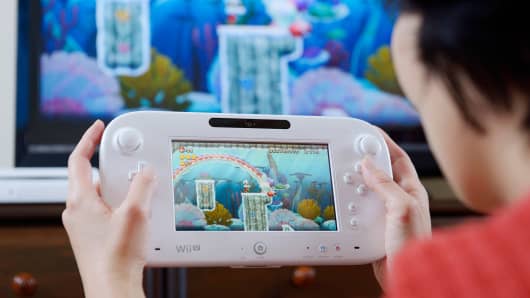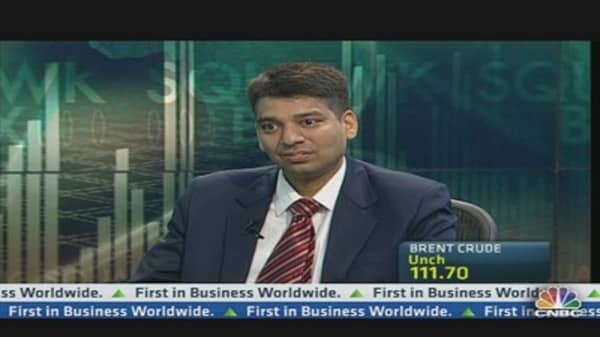While the Wii U hasn't lived up to sales expectations and some important video game publishers have severely pulled back their support of the company, Nintendo's global CEO isn't looking to shift blame.
Unlike many executives who might obfuscate the issue with corporate doublespeak or finger-pointing, Satoru Iwata is blunt in his assessment of the company's recent troubles.
"We are to blame," he said. "We relaxed our [marketing] efforts, so the consumers today still cannot understand what's so good and unique about the Wii U. Because we're always trying to be unique, it takes some energies on our side to [make] people understand the real attractions about whatever we are doing."
Nintendo has faced this sort of hurdle before. While the Wii is part of the gaming vocabulary today, it was a concept so revolutionary when it was unveiled eight years ago that the company had to teach players how to use it.
(Read More: Chart Topping Games)
That campaign, obviously, worked—with the Wii going on to sell roughly 100 million units worldwide. A big part of that early success came courtesy of "Wii Sports," an included game that showcased the platform.
To date, the Wii U doesn't have that sort of flagship title. And, as a result, said Iwata, it's harder to get people to even try the system.
"We have been unsuccessful in coming up with one single software with which people can understand, 'OK, this is really different,'" he said.
"As long as people have hands-on [experience], they can appreciate the value of the Wii U, but because there's not software that's simple and obvious for people as 'Wii Sports' for the Wii, potential consumers do not feel like trying the Wii U. Our challenge today is with the software lineup we are introducing now, we have to encourage [people] to experience the Wii U in the first place."




